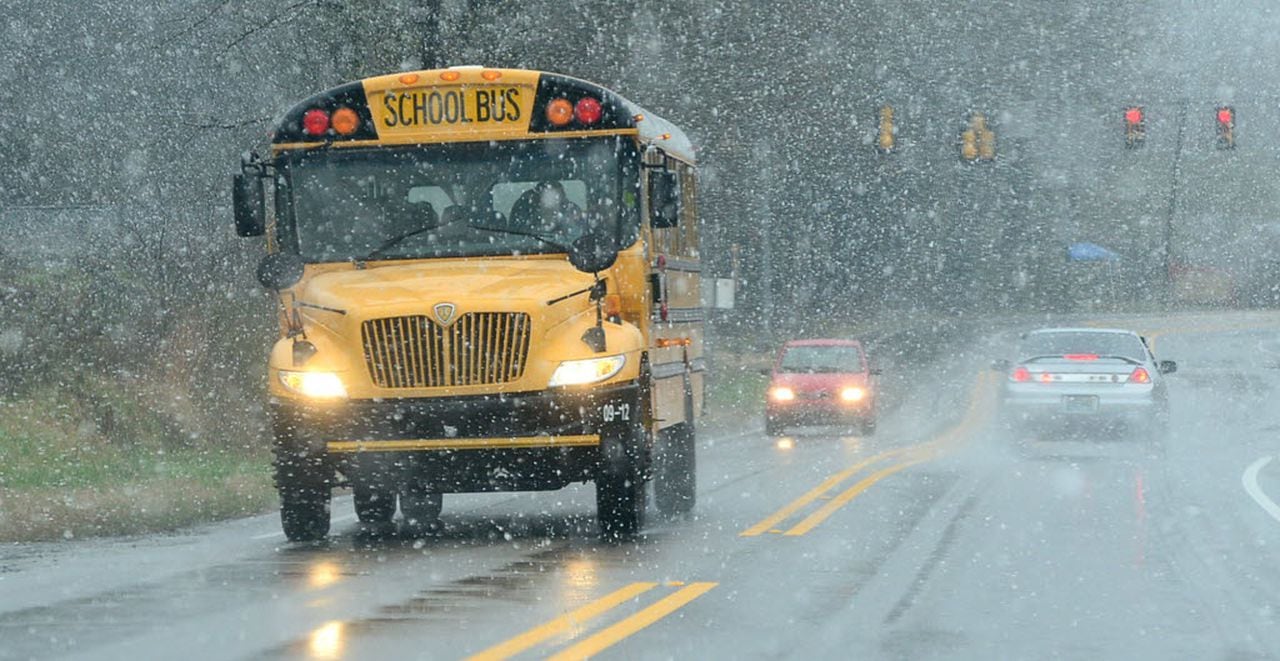School Delays Due To Winter Weather Advisory: What You Need To Know

Table of Contents
Understanding Winter Weather Advisories and Warnings
Navigating the various winter weather alerts is the first step in successfully managing school delays. Understanding the differences between advisories, watches, and warnings is crucial.
Different Levels of Alerts
It's vital to distinguish between the different levels of alerts issued by meteorological services. These alerts indicate the severity of the impending weather and its potential impact on daily life, including school schedules.
- Winter Weather Advisory: This signifies that winter weather conditions are expected, but not necessarily severe. Expect accumulating snow, sleet, or freezing rain, potentially causing travel difficulties and minor school delays.
- Winter Storm Watch: This alert indicates that a winter storm is possible within the specified timeframe. Conditions could deteriorate rapidly, leading to significant disruptions, including school closures. Closely monitor weather updates.
- Winter Storm Warning: This is the most serious alert. A winter storm is imminent, with significant snowfall, freezing rain, or strong winds expected. School closures and significant travel disruptions are highly likely.
For example, a Winter Weather Advisory might mean a few inches of snow, potentially causing minor delays, while a Winter Storm Warning suggests heavy snowfall leading to full school closures.
Reliable Sources for Weather Information
Staying informed is key. Rely on reputable sources for accurate and up-to-date weather forecasts.
- National Weather Service (NWS): The official source for US weather information.
- Local News Channels: Your local news stations provide localized weather forecasts, often including specific information about school closings.
- Reputable Weather Apps: Many weather apps offer detailed forecasts, alerts, and school closing information.
Remember to check multiple sources to ensure consistency and accuracy in your weather information.
How Schools Communicate Delays and Closings
Understanding how your school communicates delays and closures is equally important as understanding the weather alerts themselves.
Common Communication Channels
Schools utilize a variety of methods to reach families about delays or closings.
- School Website: Most schools post announcements prominently on their websites. Check this regularly, especially during winter weather.
- Automated Phone Calls: Many schools use automated phone systems to directly contact parents. Ensure your contact information is up-to-date.
- Email: Schools may send email alerts to parents. Sign up for school email lists if you haven't already.
- Text Alerts: Increasingly, schools are using text messaging for immediate alerts. Opt in to receive these notifications.
- Social Media: Some schools use social media platforms like Facebook or Twitter to announce delays or closures.
Advantages and Disadvantages: While phone calls provide immediate notification, emails and texts offer a written record. Websites are convenient for checking updates, but social media can sometimes lack official confirmation.
What to Do if You Don't Receive Notification
If you haven't received official communication, take proactive steps:
- Contact the School Directly: Call the school administration to inquire about the status of classes.
- Check the School Website Frequently: Refresh the website regularly for updates.
- Monitor Local News Channels: Local news often reports on school closings.
Always prioritize confirming directly with the school.
Preparing for School Delays Due to Winter Weather
Proactive planning is crucial for minimizing disruption during winter weather events.
Creating a Contingency Plan
Having a backup plan in place is essential. Consider:
- Childcare Options: Identify backup childcare arrangements if schools close unexpectedly.
- Working From Home: If possible, arrange to work remotely on days when schools are closed.
- Engaging Activities: Prepare engaging activities to keep children occupied at home during unexpected closures. Have books, games, and craft supplies readily available.
Winter Weather Safety Tips for Students
Ensuring your children's safety is paramount. Teach them:
- Dress Warmly: Layer clothing to retain body heat.
- Avoid Icy Patches: Caution children to walk carefully on sidewalks and avoid slippery areas.
- Be Aware of Surroundings: Instruct them to be aware of their surroundings and to avoid distractions while walking to or waiting for the school bus.
Conclusion
Successfully navigating school delays due to winter weather advisories requires understanding winter weather alerts, utilizing various communication channels, and preparing in advance. By staying informed, creating a contingency plan, and emphasizing winter safety, you can minimize disruptions and ensure your child's well-being during winter storms. Remember to subscribe to school alerts, bookmark reliable weather sources, and always check official communication channels for the latest updates. Proactive planning significantly reduces the stress associated with school delays due to winter weather advisory. Be prepared and stay safe!

Featured Posts
-
 Ris Zachary Cunha Transitions To Private Law Practice
May 20, 2025
Ris Zachary Cunha Transitions To Private Law Practice
May 20, 2025 -
 Analyzing The 2025 Plunge In Big Bear Ai Bbai Stock Key Factors
May 20, 2025
Analyzing The 2025 Plunge In Big Bear Ai Bbai Stock Key Factors
May 20, 2025 -
 D Wave Quantum Nyse Qbts Stock Decline Analyzing Kerrisdale Capitals Critique
May 20, 2025
D Wave Quantum Nyse Qbts Stock Decline Analyzing Kerrisdale Capitals Critique
May 20, 2025 -
 Big Bear Ai Stock Potential Risks And Rewards
May 20, 2025
Big Bear Ai Stock Potential Risks And Rewards
May 20, 2025 -
 Cunha To Man Utd Transfer Latest And Potential Alternatives
May 20, 2025
Cunha To Man Utd Transfer Latest And Potential Alternatives
May 20, 2025
